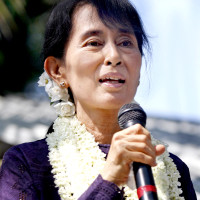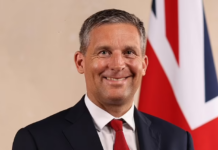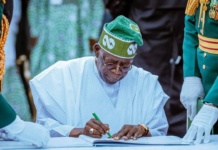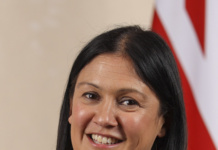Opposition leader Aung San Suu Kyi has kicked off campaigning for Myanmar’s historic November 8 general election with a Facebook post, one of many signs of how far the country and its most recognisable politician have come in a few years.

In a video message, the opposition leader called the upcoming elections “a crucial turning point for our country”.
“For the first time in decades, our people will have a real chance of bringing about real change,” Suu Kyi said, in a message posted on her party’s Facebook page in Burmese and English. “We hope that the whole world understands how important it is for us to have free and fair elections.”
More than 90 political parties will take part in the parliamentary elections, which are being closely watched as the next step toward democracy in a country that was run by a repressive military junta for nearly half a century.
The polls will be the first since a nominally civilian government was installed in 2011. But with the military still firmly in control of the process, there is widespread speculation as to whether the election will be free and fair.
Aung San Suu Kyi, who enjoys huge public support, is barred from running for president, because of a controversial clause in the constitution but is seeking re-election to Parliament. The constitution excludes those with a foreign spouse or foreign children from becoming president. The clause is widely seen as custom-made for Suu Kyi, who was married to a late British academic and has two sons with British nationality.
But the elections will still be the first time Suu Kyi’s National League for Democracy (NLD) party has contested a general poll in 25 years. The NLD is expected to make large gains at the expense of the ruling party, and may even win a majority.
The last time the NLD took part in a national election was in 1990, and they won by a landslide. But the result was ignored by the military, which kept the charismatic, popular Suu Kyi locked away under house arrest for 15 years without phone lines, or Internet and blocked virtually all contact with the outside world.
The party boycotted the next nationwide poll in 2010 because Suu Kyi, a Nobel Peace Prize winner, was still under house arrest and barred from taking part. The 2010 polls were condemned by international observers for widespread irregularities. It was in 2010, that Suu Kyi commented through her lawyer that she wished to “sign up on Twitter” once she was released to “get in touch with the younger generation inside and outside the country.”
A week after the 2010 election, Suu Kyi was released from house arrest. Her party stood in 2012 by-elections, winning 43 of the 44 seats it contested, including Suu Kyi’s first elected post as a member of parliament.
“We hope to take our country to that point where there can be no return from genuine development in the democratic direction,” Suu Kyi said in the video message on Tuesday. “Please help us by observing what happens before the elections, during the elections, and, crucially after the elections.”








